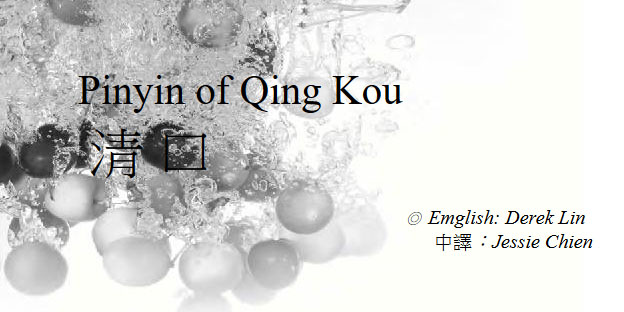
Practitioners of I-Kuan Tao formally become vegetarians after they go through the Ching Ko ritual. Therefore, some describe the Ching Ko as the vegetarian vow of I-Kuan Tao. In truth, the essence of Ching Ko goes beyond vegetarianism.
一貫道信徒歷經清口儀式後,正式成為素食者。因此,有人將「清口」形容為一貫道的素食愿。事實上,清口的涵義不只是素食而已。
In Chinese, Ching / Qing means "to clear up" and Ko / Kou means "mouth." The essence of its teaching is clarity and compassion in two respects:
中文「清」字,意指「清理」;「口」字,意指「嘴」。清口的涵義以兩方面來說是「明辨」以及「慈悲」。
1. The food you put into your mouth. By consciously choosing plant-based foods to minimize direct killing, you express the natural compassion within you. When you follow the Tao in this manner, you also enjoy positive side effects in terms of better health, clearer mind, and abundant energy.
1.放進口裡的食物: 取用植物類的食物以減少直接殺戮,就能表現出本然的慈悲。以這種方式行道,將可享有健康、清明的心智以及豐盛的能量。
2. The words coming out of your mouth. By consciously choosing to minimize gossips, harsh judgments, untruths and misleading half-truths that you utter, you clear up your communications. When you honor your connections with others in this manner, you elevate your relationships with them to the nextlevel.
2.說出口的言語: 誡談他人是非,不做嚴厲批判,並避免不實及誤導的言論;如此方能淨化與他人的溝通。以這種尊重的心態與他人接觸,即是提昇您與他人的關係。
Tao cultivators who understand Ching Ko will bring mindful awareness to theirinput (foods consumed) and output (words spoken) in life. It is the realization that there is no need to bring death and destruction to animals with what we eat; it is also the recognition that it is entirely within our powers to refrain from causing harm to others with what we say. Together, the two aspects form a more complete practice in the Tao of kindness.
理解「清口」意義的修道人會注意自己生活中的「出出入入」─吃進的食物及說出口的話語。修道人明白: 不必因口腹之慾造成動物的毀滅及死亡;也清楚自己可以克制不說出傷人的話語。這兩項合起來,才能完整的顯現修道的慈悲。

